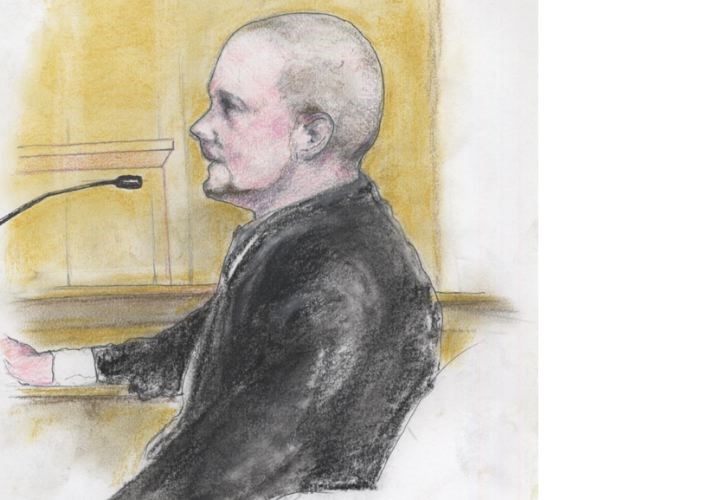Convicted serial killer Cody Allan Legebokoff will be just 45 years old when he becomes eligible for full parole under the sentence he was issued this week for the first degree murders of three women and a teenage girl.
Sentenced to concurrent terms of life in prison without eligibility for parole for 25 years, the clock started ticking on Nov. 27, 2010, the night Legebokoff was arrested.
That means Legebokoff, now 24, had already served nearly four years in jail by the time he was issued the sentence Tuesday by B.C. Supreme Court Justice Glen Parrett.
Not only that, he will be eligible for day parole after 22 years and, because he was arrested before the Conservative government eliminated the so-called "faint hope" provision, Legebokoff can still apply after 15 years for a reduction in the wait.
But the key word in all of this is "eligible." Legebokoff must still apply for early release, and the parole board can still decide to keep him locked up, National Parole Board spokesman Patrick Storey confirmed Thursday.
The board's primary task is to determine an offender's risk of re-offending if let back onto the street but it considers information from plenty of sources, from police and lawyers to psychologists and psychiatrists.
The board will also look at the nature and brutality of the crime and consider substance abuse and anger management issues and whether the convict shows deviant patterns of sexual arousal.
"The board looks at their performance in correctional programs and it's not just whether or not they've completed the program but whether or not the person has changed their behaviour and attitude significantly and that those changes are observable," Storey said.
Victims' families will also get their say and they've made it clear they want Legebokoff to spend the rest of his days behind bars. The judge's sentencing comments will also be taken into account, and Parrett stressed he "should never be allowed to walk among us again."
Legebokoff denied carrying out the killings and has not revealed the location of one victim whose body has not been found. Although it has always been a factor, the importance the parole board must give of an offender's level of accountability has been increased by the Conservatives.
"Now, people who deny culpability still occasionally get a parole release because it's only one of the things the board looks at, but it's tougher," Storey said. "If you're claiming your innocence or you're saying you didn't pull the trigger, or somebody else did, then it's an issue."
The sentence Legebokoff faces is more stringent than for those who commit lesser crimes but are deemed "dangerous offenders" in that they become eligible for parole after seven years although they too can remain behind bars until they die.
Full parole comes only after successful completion of day parole, which carries strict conditions.
"It's a very structured release," Storey said. "They have to live in a halfway house, the halfway house is staffed 24/7. There are people there watching your gait, checking the dilation of your pupils, monitoring your mood, your comings and goings, etceteras.
"There is a parole officer, they have access to psychological help, they have programs to attend to, they have employment programs they can attend to help them find employment, so on day parole anyway, they're very closely supervised."
Murderers who are released remain under supervision, and subject to special conditions, for the rest of their lives.
"For a lifer, you're always under sentence right until the day you die," Storey said. "Even someone who has committed first degree murder is let out on day parole or full parole, and they breach the conditions of their release, they can be returned to custody and they start over again."



